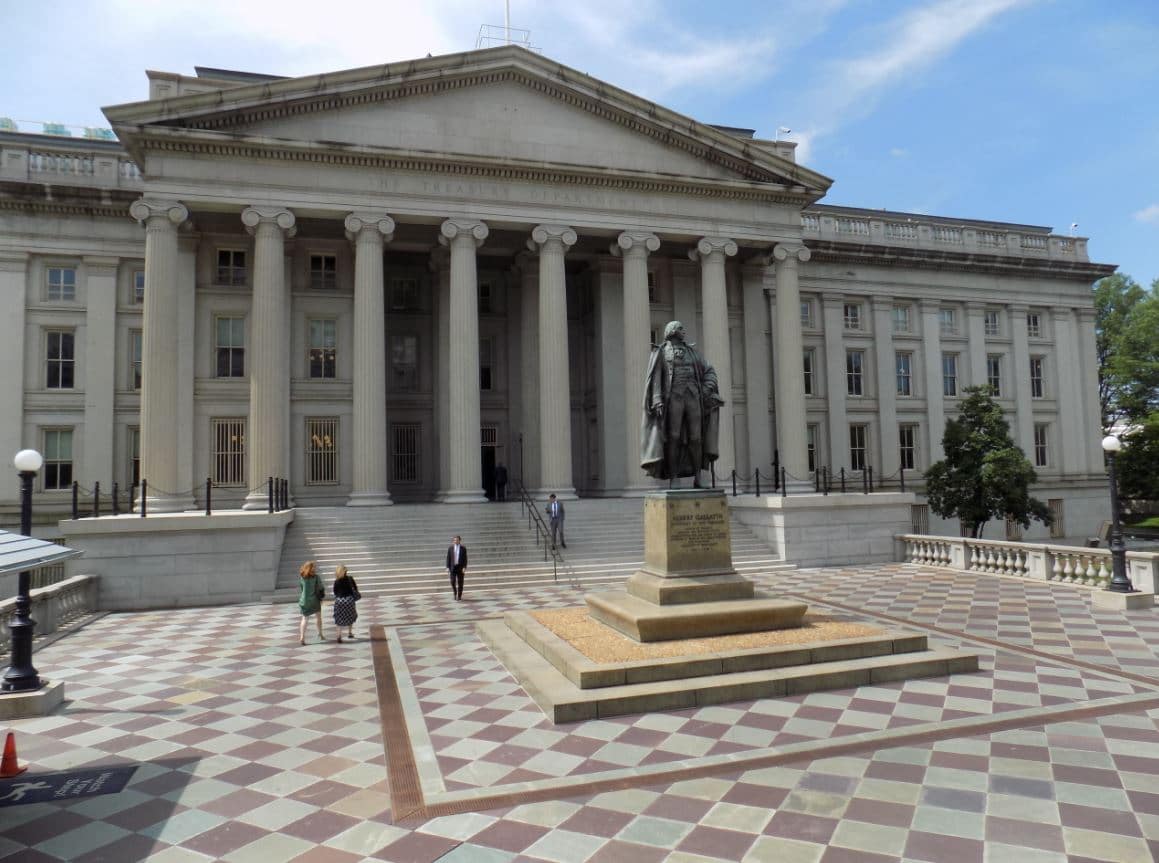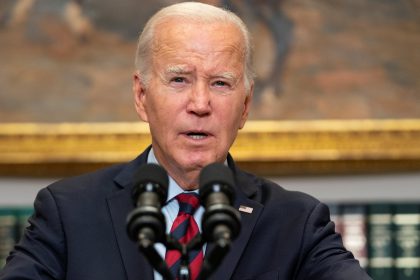Federal Debt on Track to Reach ‘Unprecedented’ Levels, CBO Says

WASHINGTON – The federal debt is on track to reach unprecedented levels in the next 30 years and will rise to 144 percent of the nation’s gross domestic product by 2049 if current laws are maintained, the Congressional Budget Office said Tuesday.
Each year, the nonpartisan agency publishes a report laying out its budget projections for the next three decades. While the office’s latest projections of the future federal debt are slightly lower than last year’s, the trend line continues to point ever upward.
“The upshot,” said CBO Director Phillip Swagel in an accompanying statement, “is that even if productivity growth or interest rates differed in meaningful ways from our projections in the direction that would tend to reduce deficits, debt several decades from now would probably be much higher than it is today if current laws generally did not change.“
The report focuses a lot on a basic measure in economics, the debt to GDP ratio.
By comparing what a country owes to what it produces, the debt-to-GDP ratio indicates its ability to pay back its debts. A high debt-to-GDP ratio may make it more difficult for a country to pay external debts and may lead creditors to seek higher interest rates when lending.
Right now, the federal government’s debt obligations amount to about 78 percent of the nation’s GDP, which as of the first quarter of 2019 stood at $21.05 trillion. (The Bureau of Economic Analysis’s next report on the nation’s GDP will be released Thursday.)
What’s somewhat bracing is that the CBO’s projection of federal debt reaching 144 percent of GDP by 2049 is it’s most moderate assessment given currently known factors.
If lawmakers changed current laws to maintain certain major policies now in place—most significantly, if they prevented a cut in discretionary spending in 2020 and an increase in individual income taxes in 2026—then debt held by the public would increase even more, reaching 219 percent of GDP by 2049.
By contrast, if Social Security benefits were limited to the amounts payable from revenues received by the Social Security trust funds, debt in 2049 would reach 106 percent of GDP, still well above its current level.
But the debt alone is only part of the story. The projected increase in federal borrowing would lead to significantly higher interest costs, the CBO said.
In CBO’s extended baseline projections, net outlays for interest more than triple in relation to the size of the economy over the next three decades, exceeding all discretionary spending by 2046.
The budget office’s crystal ball forecasts the federal government’s revenue being relatively flat over the next few years, then rising slowly until it experiences a bump from the scheduled expiration of certain provisions of the 2017 tax act.
Thereafter, revenues are projected to continue to rise, but not to keep pace with growth in spending.
The factor contributing most to the long-term growth in revenues is the increasing share of income that is pushed into higher tax brackets.
And what of that spending? Well, most of it will stem from the aging of the population, with spending for Social Security and the major health care programs (primarily Medicare) being projected to rise as a percentage of GDP over the coming decades. The growth of spending for Medicare and other major health care programs is also driven by rising health care costs per person.
As a result of all this, the CBO projects budget deficits will increase from 4.2 percent of GDP in 2019 to 4.5 percent by 2029, 6.8 percent by 2039, and 8.7 percent by 2049.
“The average deficit over the past 50 years was 2.9 percent of GDP,” Swagel said. “The prospect of such large deficits over many years, and the high and rising debt that would result, poses substantial risks for the nation and presents policymakers with significant challenges.
Responding to the CBO report, House Majority Leader Steny Hoyer, D-Md., said he’s “deeply concerned about the legacy we are leaving to future generations through our unwillingness to tackle growing budget deficits and mounting debt.
“Today’s young people face a serious threat to their ability to control their own economic destiny. The Congressional Budget Office’s long-term budget outlook released today paints an alarming picture of compounding interest payments, an aging population, and rising health costs,” he said.
Hoyer went on to say the report “details how a lack of fiscal sustainability risks subjecting our children and grandchildren to significant financial crises, untethered inflation, and an erosion of confidence in the dollar.
“What it also makes clear is the extent to which President Trump and Republicans in Congress exacerbated these problems by directing trillions in tax cuts to the wealthiest Americans. Congress owes it to future generations to heed CBO’s warning to restore some fiscal sanity before it is too late,” the House majority leader said.
Representatives Ed Case, D-Hawaii, and Ben McAdams, D-Utah, co-chairs of the Blue Dog Democrats’ Task Force on Fiscal Responsibility & Government Reform, also released a statement saying, “The nonpartisan CBO report should sound alarm bells within both parties to work together to get our nation out of this fiscal mess.
“If we don’t act, future generations will be forced to bear the burden of our failure. On the current path, next year, we will spend more on interest on the debt than all federal funding that supports our kids,” the congressmen said. “In 27 years, we will spend more on interest than the entire current discretionary budget, including defense and all domestic programs. It is clear we are on a dangerous and unsustainable course—and we need to do something about this now. The decisions won’t be easy, but our children and our grandchildren are counting on us to make this right. In the coming months, we look forward to advancing a plan to turn the tide around and begin to get our nation back on the path to fiscal sustainability.”
The sobering substance of the CBO report also came as no surprise to the Peter G. Peterson Foundation, an organization dedicated to reducing the federal debt and getting the government on a firm financial footing.
At a recent summit held at the Newseum in Washington, the foundation noted that on its current path, the federal government will soon be spending less on the welfare of the nation’s children than it does on the interest on the national debt.
The foundation also noted that federal government is currently spending an average $1 billion per day on net interest on the national debt, about $3,000 per American family this year.
On Tuesday, the foundation’s CEO, Michael Peterson, said the CBO report is a “reality check” for lawmakers.
It’s bad enough that our annual deficit will soon reach $1 trillion, but CBO’s long term projections show that the deficit will continue growing into the future, with no end in sight,” he said.
“These clear projections should motivate our lawmakers to begin managing the debt immediately, and budgeting responsibly to help America meet its most pressing challenges,” Peterson continued. “We owe it to coming generations to create a stronger, smarter fiscal foundation. CBO’s report shows us that failing to address the debt will result in reduced opportunities, resources and quality of life for our kids and grandkids.”
























